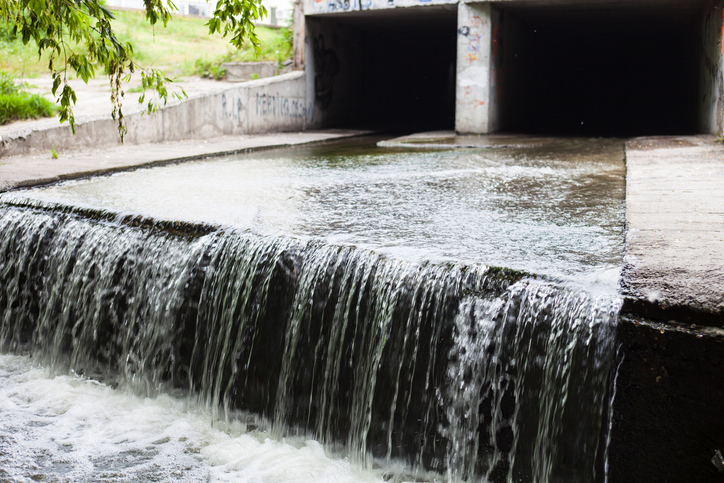Next time it rains, observe how water flows once it hits the ground. If you are one of the 80.7% of Americans living in urban areas, chances are water has trouble penetrating the ground when it rains where you live.
Due to increasing impervious cover (like paved streets, driveways, and rooftops), large volumes of water end up flowing across the land as stormwater runoff as opposed to penetrating the ground.
Runoff is one of the main threats to the over 3.5 million miles of rivers and streams in the US that supply water for our crops, power our cities, support aquatic ecosystems, and provide numerous recreational and commercial opportunities.
This is because as stormwater runs off, it accumulates pollutants like sediments, nutrients, and oils, before entering nearby water bodies, including streams and rivers. Large volumes of fast-moving runoff can impact streams and rivers by increasing flooding, eroding streambanks, and removing habitat features aquatic species rely on.
To make matters worse, in many older cities stormwater is diverted to storm drains, where it is normally transported along with raw sewage to wastewater facilities for treatment prior to being discharged to water bodies.
However, as development increases impervious cover, and as heavy storms have increased in frequency and intensity worldwide in the last 50 years, the capacity of sewer systems is often exceeded.
As a result, untreated sewage and stormwater are discharged into nearby streams and rivers, where they can be toxic to fish, plants, and other aquatic species. More than 750 US cities have sewage systems that overflow into nearby waterways during large storms, translating to an estimated 10 trillion gallons of untreated water polluting waterways each year.
There are efforts at the city and community scales to combat stormwater runoff by using best management practices (BMPs). These BMPs treat, prevent, or reduce water pollution.
However, you are part of the solution as well—to celebrate June being National Rivers Month, here are some ways you can make an impact.
REDUCE STORMWATER POLLUTANTS:
- Don’t litter, and never dump anything down storm drains or into streams and rivers. Consider recycling, composting, and removing trash from driveways, sidewalks, and gutters.
- Clean up pet waste and keep animals out of streams and rivers to reduce bacterial and nutrient pollution.
- Follow labels when applying lawn chemicals, and use fertilizers, pesticides, and herbicides sparingly. Consider using less toxic pesticides or organic fertilizers—see EPA’s Safer Choice Program to find products that are safer you and your family.
- Watch the weather. Don't apply chemicals to dormant lawns or frozen ground, and don't apply fertilizers before a rainstorm.
- When maintaining your car, check for leaks and recycle motor oil. Clean up oil spills and leaks on the driveway. When it's time for a wash, consider taking your car to a commercial car wash, where the water will be recycled. If you wash your car at home, wash it on your lawn.
- Have your septic tank pumped and your septic system inspected regularly.
REDUCE STORMWATER VOLUME:
- Consider reducing the amount of polluted water that runs off your property by directing downspouts onto gravel, vegetated areas (like grass, plant beds, and rain gardens), or into rain barrels rather than driveways or sidewalks.
- Use porous surfaces like mulch, bricks, gravel, or permeable pavement in place of asphalt or concrete for walkways, patios, and driveways. These materials improve water infiltration.
- Plant trees or preserve existing ones—trees hold rainfall and help manage stormwater.
----
Republished with permission from NEEF: https://www.neefusa.org/weather-and-climate/weather/stormwaters-impact-america-s-rivers
---
Get more environment news on wkyc.com at http://www.wkyc.com/weather/environment


